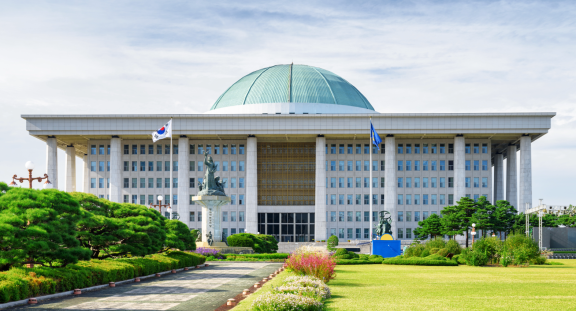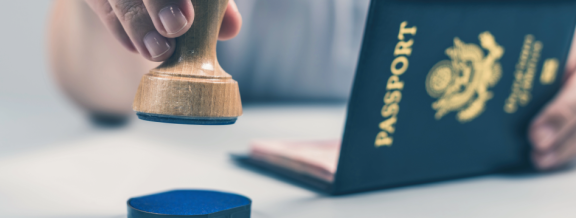
Emigrate to South Korea
Emigrate to South Korea: Find out the most important information for your stay here
Japan is an island nation in the Pacific known for its densely populated cities, imperial palaces, mountainous national parks and thousands of shrines and temples. For many who wish to emigrate to Japan, the country is particularly attractive due to its unique blend of tradition and modernity. The high-speed Shinkansen trains connect the main islands of Kyushu, which offers subtropical beaches such as Okinawa, Honshū, where Tokyo and the Hiroshima atomic bomb memorial are located, and Hokkaido, which is famous for its renowned ski resorts. The capital Tokyo impresses with its skyscrapers, shopping opportunities and vibrant pop culture. Expatriation to Japan offers the opportunity to experience and discover these fascinating contrasts and the country's rich culture at first hand.
Facts about South Korea
Capital City
Seoul
Population
51.63 million
Surface Area
62,267.61 mi² or 100,210 km²
Continent
Asia
Official Language
Korean
Currency
Korean won (KRW)
Emigrating to South Korea: An overview of the political system
South Korea, an East Asian country located on the southern half of the Korean Peninsula, is attracting more and more people who are thinking about emigrating to South Korea. The country borders one of the most secure borders in the world, that with North Korea, and is famous for its green, hilly landscapes characterized by cherry trees and Buddhist temples. For those emigrating to South Korea, picturesque fishing villages along the coast, subtropical islands and ultra-modern cities such as the vibrant capital Seoul offer a diverse and exciting environment that combines tradition and modernity.

Climate in South Korea: Important information for emigrants
South Korea is characterized by a temperate continental climate with significant seasonal differences. Spring, from the end of March to May, is generally mild and sunny. Summer starts with the onset of the monsoon in June, when humid air masses from the south-east bring the majority of the annual rainfall. Temperatures during this time are usually between 25 and 30 degrees, accompanied by high humidity.

Healthcare system in South Korea: Important facts for emigrants
Japan's healthcare system is not only considered to be one of the best in the world, but also one of the most efficient. In contrast to the USA, which relies on private insurance, and Germany, which offers both statutory and private health insurance, Japan uses a centralized system co-financed by the state with a single provider, the Statutory Health Insurance System (SHIS). All Japanese are insured in various forms through this centralized state provider. There are also private insurance policies, which are widespread and popular in Japan. These either cover additional benefits, pay sickness benefits or cover part of the deductible provided for in the Japanese healthcare system.
A special feature of the Japanese healthcare system is its strong focus on prevention. It offers numerous opportunities for check-ups and preventive care, which is not common in many other countries. At the same time, Japan faces the challenge of managing the costs of its ageing population. Although the cost-effectiveness of the existing system partially alleviates this burden, it still leads to high, tax-funded transfers from the state to the healthcare system.

Emigrating to South Korea: An overview of the economic situation and quality of life
South Korea's gross domestic product per capita in 2023 amounted to 33,192.05 US dollars. The Gini coefficient of wealth describes the distribution of wealth. The indicator is an established, internationally comparable measure of wealth inequality. It is measured on a scale from zero to one. The higher the value, the greater the inequality. The Gini coefficient in South Korea is expected to be 0.31 in 2024 (source: Statista).
The mixture of varied leisure activities, impressive landscapes, diverse cultural offerings and an excellent infrastructure makes emigrating to South Korea attractive for many people. These factors contribute significantly to the high quality of life in South Korea and offer those who emigrate to South Korea an exciting and comfortable living environment.

National holiday
Gwangbokjeol
Independence from Japan in 1945
Emigrate to South Korea - Entry Requirements
Entry is possible for German nationals with the following documents:
- Passport: Yes
- Temporary passport: Yes
- Identity card: No
- Temporary identity card: No
- Children's passport: Yes

FAQs for emigrating to South Korea
Where can I find relevant information about my country of entry and the entry regulations that apply there?
We have compiled destination country information as well as entry requirements and customs information for many countries in the Relocation Service section of our website and are constantly expanding this section.
Can I use my own container that I already own for the move with DACHSER & KOLB?
For every removal, which we at DACHSER & KOLB always offer as a door-to-door (full service) removal, a container is rented for the duration of the removal. We therefore do not offer the option of using your own container.
Who is responsible for my move abroad and the services I need there?
As a FIDI member, we work abroad with selected, long-standing partners who work in accordance with our service standards.
Are my removal goods insured in the event of damage?
For every overseas move, we naturally cover transportation insurance at current value for the used household goods and personal belongings
What types of transportation do you offer for overseas relocation?
It is generally possible to carry out overseas removals via air freight or sea freight. In the case of sea freight, it is possible to ship the removal goods as additional cargo (“LCL shipment” with Liftvan) or with a container (FCL shipment in 20 feet, 40 feet or 40 feet high cube). We will be happy to discuss which option is best for you in a personal consultation.
When and how must the move be paid for and what is the payment deadline?
You will receive an invoice a few weeks after placing the order and pay the full amount directly in advance.
Do I have to pay taxes and customs duties on my removal goods?
Removal goods can be imported tax and duty-free into most countries if you have a valid residence permit. We will be happy to check the options for importing the removal goods for your desired destination country in a personal consultation.
Are you interested in moving to South Korea or another destination country?
Then do not hesitate and contact us today.
Alexander Brugger
Teamlead Customer Service & Sales - AIR&SEA






